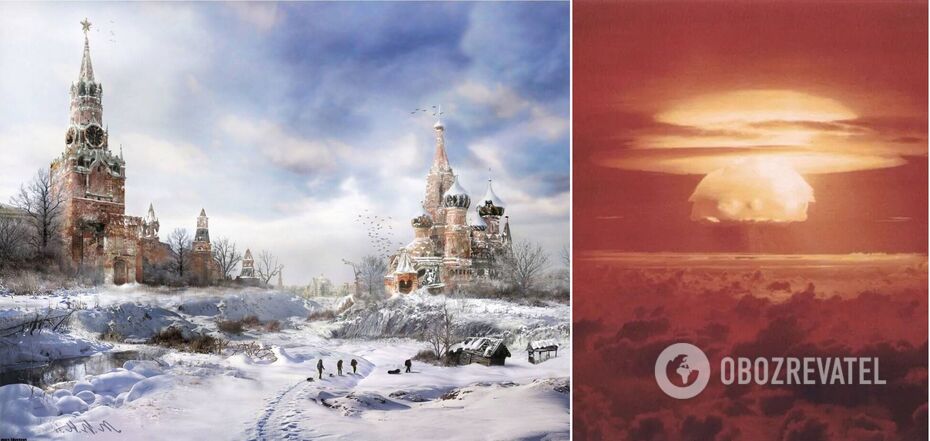Life
5 countries will be able to survive nuclear apocalypse and save humanity: research by scientists
Against the backdrop of incessant nuclear threats made by the hotheads of the aggressor country Russia against the Western countries that support Ukraine, scientists are trying to understand whether humanity has a chance to survive in the event of a real escalation. And while some are studying where to hide from a powerful explosion, others are trying to calculate which countries will have the best chance of surviving a "nuclear winter".
The scientific journal Risk Analysis has published a study by scientists who have identified five countries that are most likely to survive the consequences of a nuclear disaster. "According to the scientists, nuclear winter can start not only after a large-scale nuclear war, but also as a result of a supervolcano eruption or an asteroid impact.
A "nuclear winter" is a prolonged and severe global climate cooling, with widespread firestorms that would block direct sunlight, which could lead to widespread crop failure and famine.
"Some southern hemisphere island nations could survive a major sunspot disaster, such as a 'nuclear winter', and be well placed to help reboot a failing human civilisation," the study says.
According to the scientists, Australia, New Zealand, Iceland, Solomon Islands and Vanuatu appear to be the most resilient to a sharp decrease in sunlight that could be caused by the effects of a global catastrophe.
The researchers write that even in the most pessimistic scenario, there are likely to be small groups of people across the planet who will survive.
"Moreover, those living in the most resilient countries will have the best chance of avoiding pre-industrial collapse," the scientists note.
However, there are risks for them as well, as civilisation in these countries may not survive, given possible problems with energy supply, lack of trade with other countries and production of their own components necessary for survival. Therefore, they should prepare for the possibility of a worst-case scenario.
"Islands such as New Zealand are often highly dependent on imports of refined liquid fuels, may lack energy self-sufficiency, and are prone to disruptions and shortages of critical goods," explained one of the study's authors, Professor Nick Wilson of the University of Otago in Wellington, New Zealand.
He also noted that the island nation may face problems due to a shortage of spare parts for the agricultural and food machinery it currently imports.
In their study, they put 38 island countries through a "nuclear winter" to see how they would cope with the supply of calorific food. The study showed that some countries would be able to provide themselves with enough food, while others would simply not be able to cope due to the "collapse of industry and social functioning".
Among the countries that have managed are New Zealand, Australia, Iceland, Solomon Islands and Vanuatu.
"Australia's food buffer is gigantic - with the potential to feed many tens of millions of additional people," the study authors noted.
"But it is not plug-and-play. A significant amount of strategic planning is required, and over a long period of time, but this planning will have benefits in dealing with a wide range of extreme risks," said Dr Matt Boyd of Adapt Research, who also worked on the study.
Boyd added that so far, there is no public knowledge of any plan developed by a country that could help save humanity in the event of a global catastrophe.
They also warn that many countries would be in a precarious position during such a catastrophe. For example, China, Russia and the United States could see a drop in food production of up to 97% according to the "nuclear winter" model and will be forced to rely on new food production technologies.
As reported by OBOZREVATEL, at the end of January 2023, the US Bulletin of the Atomic Scientists announced the resetting of the Doomsday Clock. It now shows 90 seconds to nuclear midnight.
Subscribe to OBOZREVATEL's Telegram and Viber channels to keep up with the latest news.




























